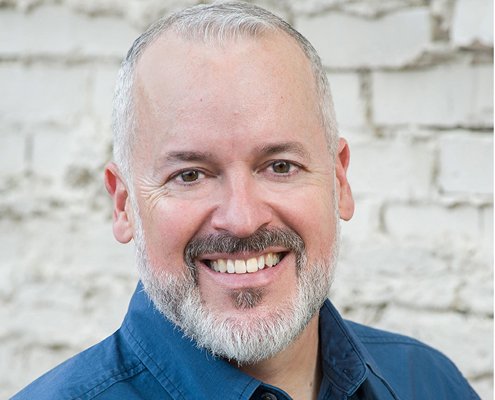Reading time: About 3 minutes
Ed Gandia likes to use mindmapping to keep himself creative during the writing process. Read this interview to learn the other strategies he employs….
Ed Gandia is a business-building coach who works to help established freelance writers and copywriters earn more in less time. His High-Income Business Writing podcast is one of the top freelancing and writing podcasts on Apple Podcasts and his insights and advice have been featured in Forbes, Inc. magazine, Fast Company, The Christian Science Monitor, The Atlanta Journal Constitution and The Writer, among others.
I was excited to talk to Ed about how he approaches writing.
Q: Roughly how much time do you spend writing every day?
I spend about one hour per day writing. I write in my journal as part of my early-morning routine, and I also write one short article draft every weekday.
Q: What’s a simple activity or habit that makes you a better writer?
It’s a two-part process for me. First, I keep a list of article ideas in an email folder that ensures I never run out of things to write about. Second, every morning when it comes time to write my article draft, I pick the topic or idea that really resonates with me at that moment. I’ve found that when I’m excited about an idea, I can write faster without editing as I write. That helps me create a better first draft much more quickly.
Q: What interferes with your writing?
When I skimp on some of the preparation steps, such as research, mindmapping or outlining, the writing phase becomes much harder. I struggle to find the words, and I find myself editing as I write, which kills my creativity and productivity.
Q: How do you persuade yourself to sit down to write on days when you really, really DON’T feel like doing it?
Rather than looking at writing as one big process, I tell myself that all I have to do is just start on something easy. For instance, mind mapping is very easy and enjoyable for me, so I may start with that. Or I’ll tell myself that all I have to do is write the middle section of the piece I’m working on, because that might feel relatively easy. Or maybe I’ll talk myself into just writing the lede—or whatever feels doable at that moment. I find that once I’ve started, I gain momentum quickly. Now I’m in the flow and can more easily move on to the next step.
Q: Is there a particular motto or saying that you’ve found helpful for writing?
It’s not quite a motto or saying; rather, it’s an attitude or mantra I’ve adopted: “Don’t make a big deal out of it. Don’t overthink it. Try to take the emotion out of the process and just get started. It gets much easier once you start.”
Q: Which stage of the writing process do you enjoy the most: researching, writing or editing/rewriting and why?
I enjoy the mind mapping stage the most, followed closely by writing the first draft. I’m very good at organizing ideas, and I’m highly visual. So seeing all the ideas and their relationship in front of me is very satisfying. It enables me to connect dots more easily and come up with better ways of telling a story or framing a concept.
Q: What’s the best book you’ve read (either fiction or non) in the last five years?
The Creative Act: A Way of Being by Rick Rubin. Rubin is an American music producer and is widely regarded as one of the most influential figures in modern music. His innovative approach to music production extends far beyond the realm of music. I found his book incredibly inspiring, offering insights on how to infuse greater creativity into both my business and personal life.
Q: What book are you reading right now?
I just started reading Time Off: A Practical Guide to Building Your Rest Ethic and Finding Success Without the Stress by John Fitch and Max Frenzel. I haven’t yet read enough to form an opinion, but this is a topic of great interest to me right now.
Q: What do you think is the biggest misperception that new writers have about the act of writing?
Many new writers often romanticize the act of writing, thinking it’s a constant flow of creativity and daily fulfillment. In reality, writing is rarely that glamorous. It’s a challenging process that requires discipline, routine, and often frustrating, messy drafts. Success in writing comes from embracing the unsexy aspects, like consistent practice, following a structured routine and approaching it as a professional commitment rather than just a creative endeavor.
You can download a free copy of Ed Gandia’s latest book, Earn More in Less Time: The Proven Mindset, Strategies and Actions to Prosper as a Freelance Writer, at www.b2blauncher.com.


